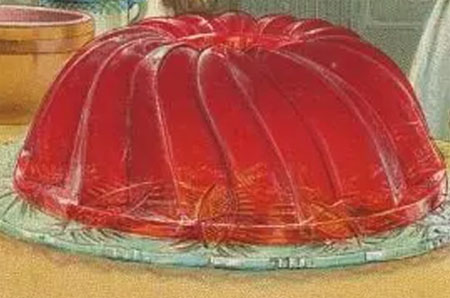
“It was,” my cousin said on the phone, “the end of an era.” Howard was an intellectual, an academic. My brother used to say that speaking with Howard often made him think that he should be taking notes. The era-ending event was my mom’s death; Howard’s call was one of condolence.
Howard went no further regarding the concept of era’s end but I thought I understood what he meant. Now, though, I wish I had discussed it with him further. Howard being Howard, he likely would have brought me to places and ideas unexpected, but he died just a few years later. So I am left to ponder the phrase, and his meaning, myself.
The end of an era. My mom was the last of her generation. My dad as well as my mom’s siblings were already dead, all uncles and aunts gone, so too that generation’s cousins. It was simple to think that was Howard’s meaning. End of a generation, end of an era.
Now I think it was more than that. She was not simply the last of the family’s generation, she was the link to a different time, when family lived in the same community and life itself seemed simpler. The 1950s, a time of weekend afternoon visits to see uncles and aunts, to play with cousins. Shopping for the week’s food at a variety of stores, the butcher, the grocer, the fruit and vegetable guy, the baker. Riding the bus downtown for an afternoon movie. An era when large holiday dinners with extended family were a normal practice, a routine both comfortable and unquestioned.
That time ended long ago as cousins became adults and moved to faraway coasts while uncles and aunts retired and moved to warmer climes. I think, though, that my mom was more than simply a link to a time long passed and that the ended era was the conclusion of a continued tradition she maintained for half a century more.
It was the dinners, her dinners. My mom loved to entertain her family, she loved the party. Decade after decade she welcomed the chance to gather family together. An uncle and aunt, or a cousin, might visit and all within reach were summoned to dinner. On holidays even more would come and though she was never able to gather the entire family together simultaneously, at one time or another all returned and sat at her table.
Her table would be beautiful and immaculately set, of course, but it was the food she served; course after course, huge quantities, and all homemade. Even into her eighties, considerably slowed by progressive disease, she hosted these gatherings, still serving as much food as ever.
“She becomes a different person when it comes to these dinners,” my dad told me in the last years of their lives when she pointedly refused his advice to “slow down a bit.” She prepared everything from appetizer to dessert.
Dessert. In the 1950s she began to serve what at first seemed like an exotic dish, the jello mold. It was prepared in a large fluted form and then removed and placed on a decorative plate, a red colored gelatin with pieces of fruit – maraschino cherries, mandarin oranges, pineapple chunks – suspended in it, seemingly defying gravity. With modest ceremony at the end of the dinner she brought it out to the praise of the assembled and cut sections which were placed one by one on dessert plates and passed to each of us.
After a few years, it ceased, for me, to be a welcome sight. Jello, a faux food without substance that slid around the plate and fell apart when one tried to pick up a spoonful or worse, a forkful. What about the other desserts that my mom would sometimes serve, baked goods or sweets, did we have to make it through the jello mold first? The first time I ever heard my mom curse, I many years an adult by then, was after a family dinner when she realized she had forgotten to serve the jello mold. Even into the twenty-first century my mom continued to serve that relic of the mid twentieth. It had gradually become a parody of itself and its absence at the end of one dinner a cause of genuine disappointment for us all.
Jello or not, those dinners were wonderful times as family would sit around the table, enjoy the reunion, recount the latest news and recall earlier happenings while my mom would look out over her table, her guests, her family, and hold court, asking questions and offering opinions, giving advice and encouraging us to please have more to eat.
It may be easier nowadays to keep in touch, e-mail, cellphones, internet, but that era of family, of warm and comfortable times when we gathered and spent time together face to face, which my mom continued for decades, provided a far more tangible and enjoyable connection.
So it was the end of an era as there is no one else to summon, to gather, to orchestrate in the insistent way she did. Family gathered once more, one final time, upon her passing, traveling from distant coasts south and west, and from the other side of the world, and we all sat at her table and had more to eat to mark the era’s end.
Originally appeared in Ocotillo Review.

01/30/2024
12:33:58 AM